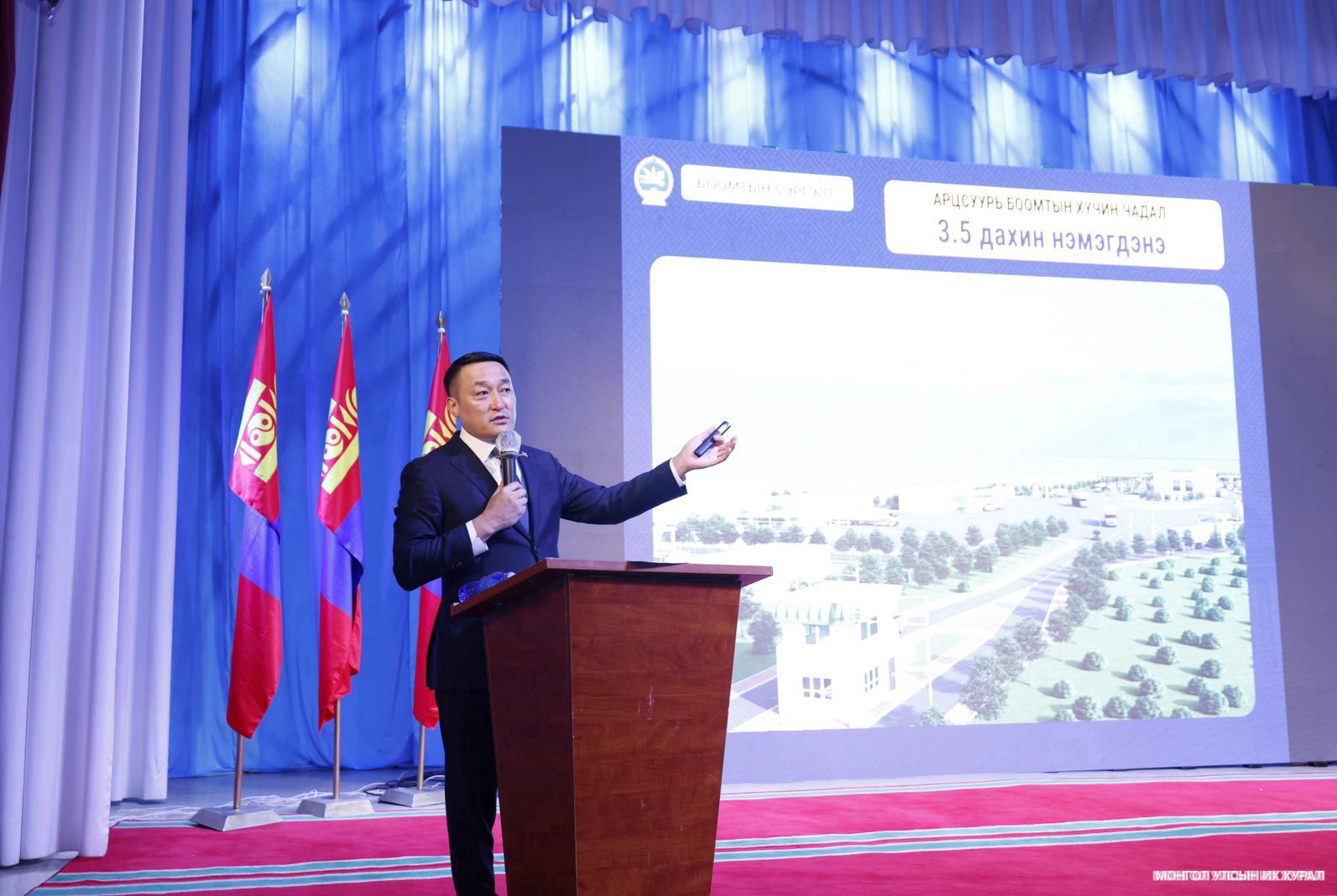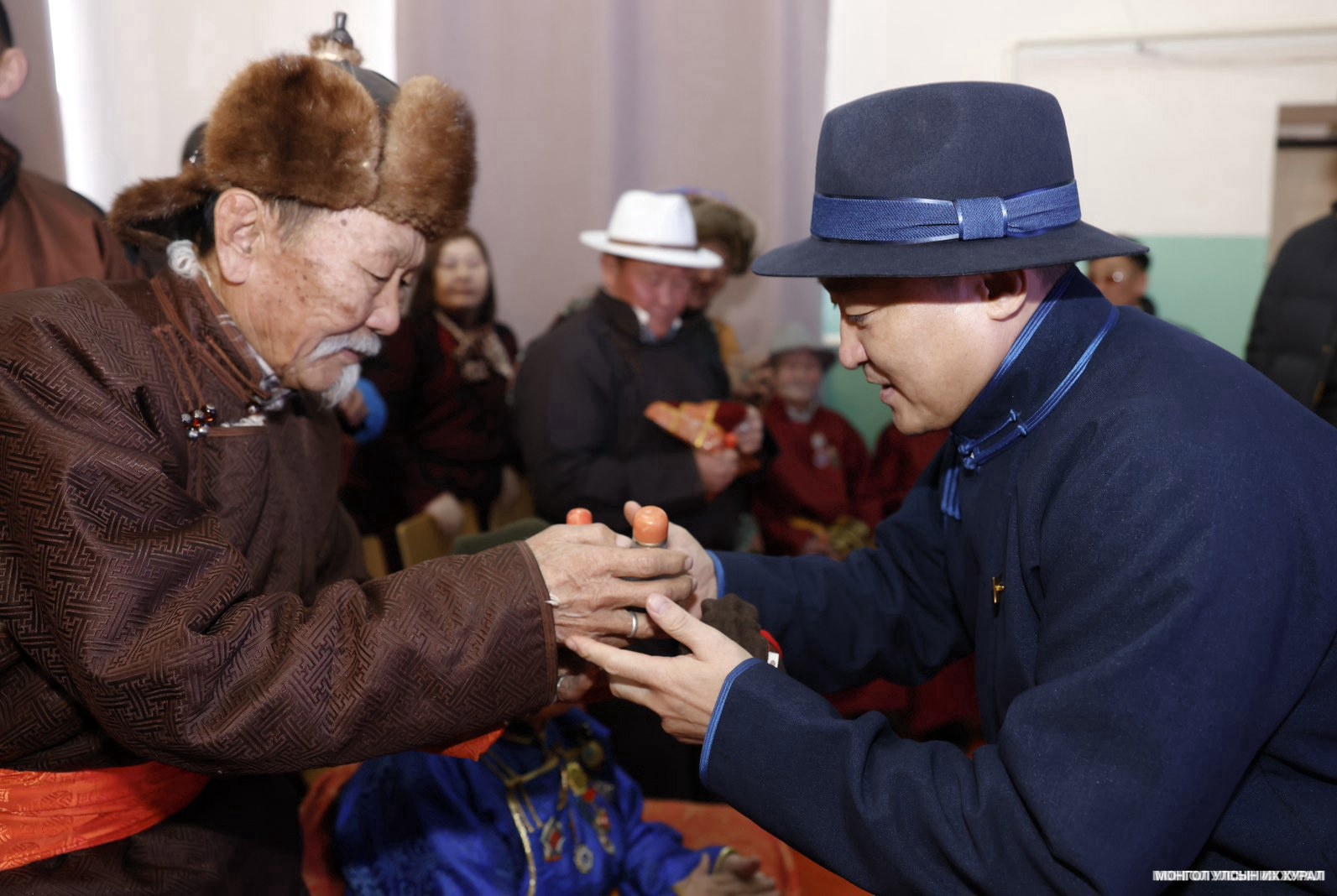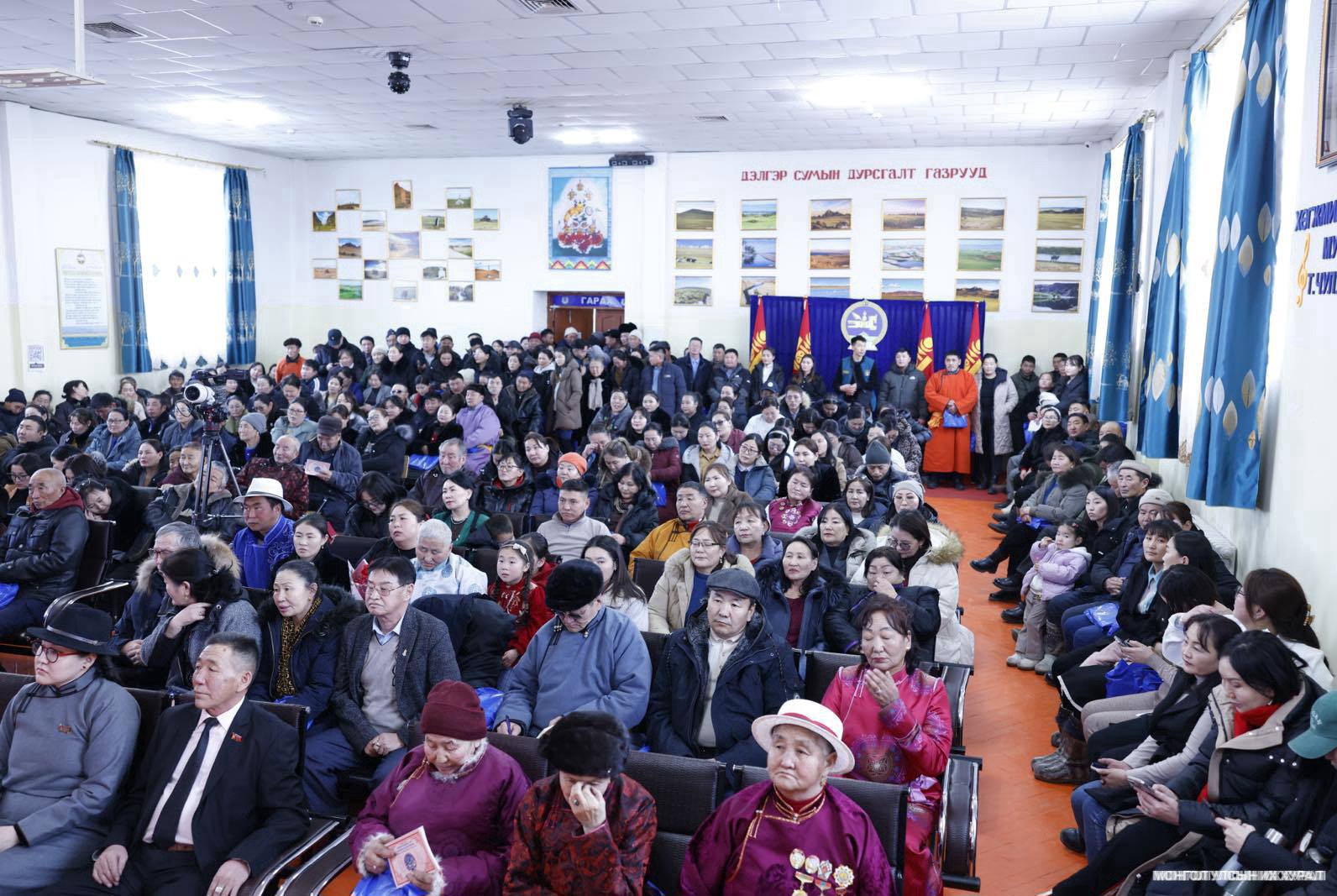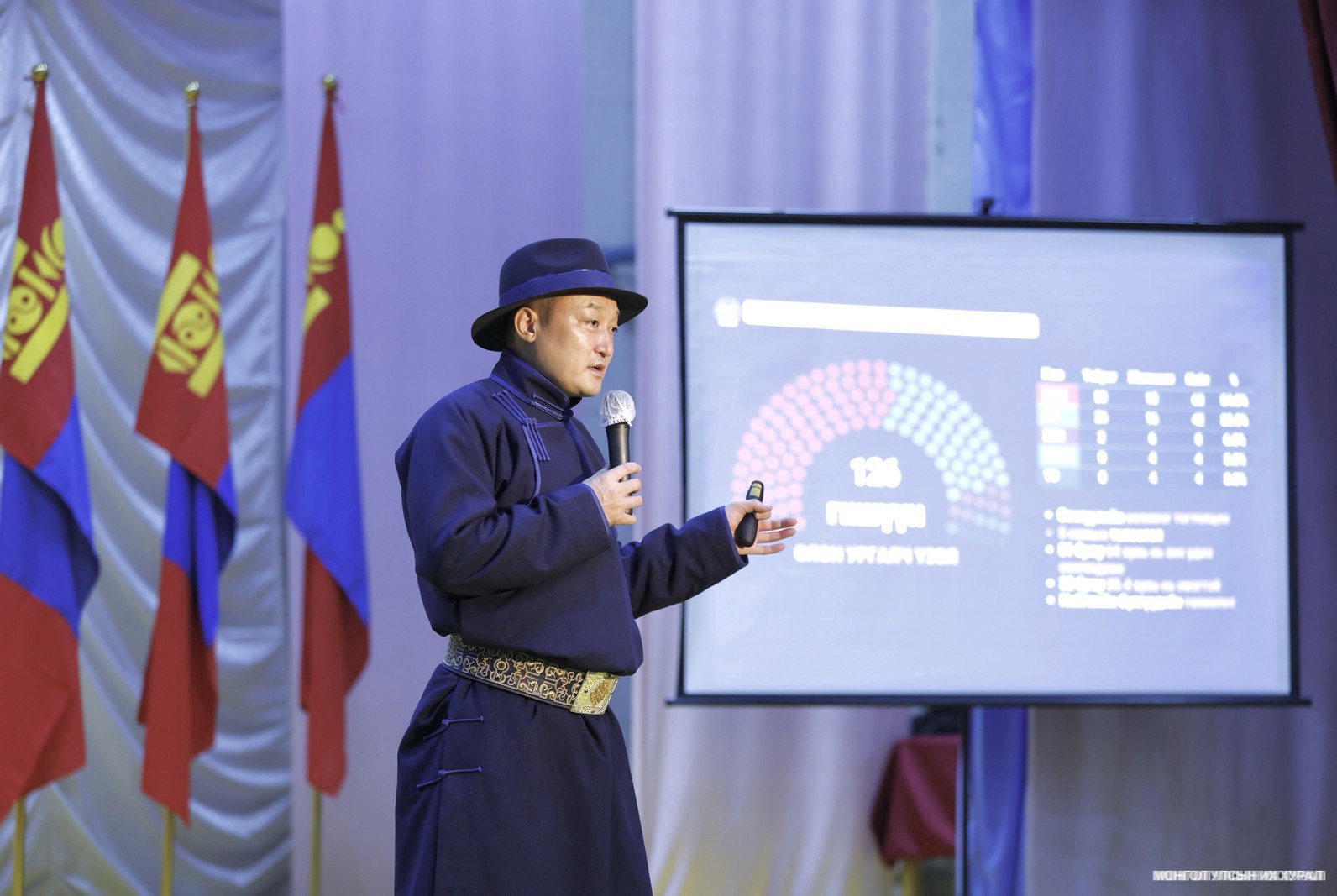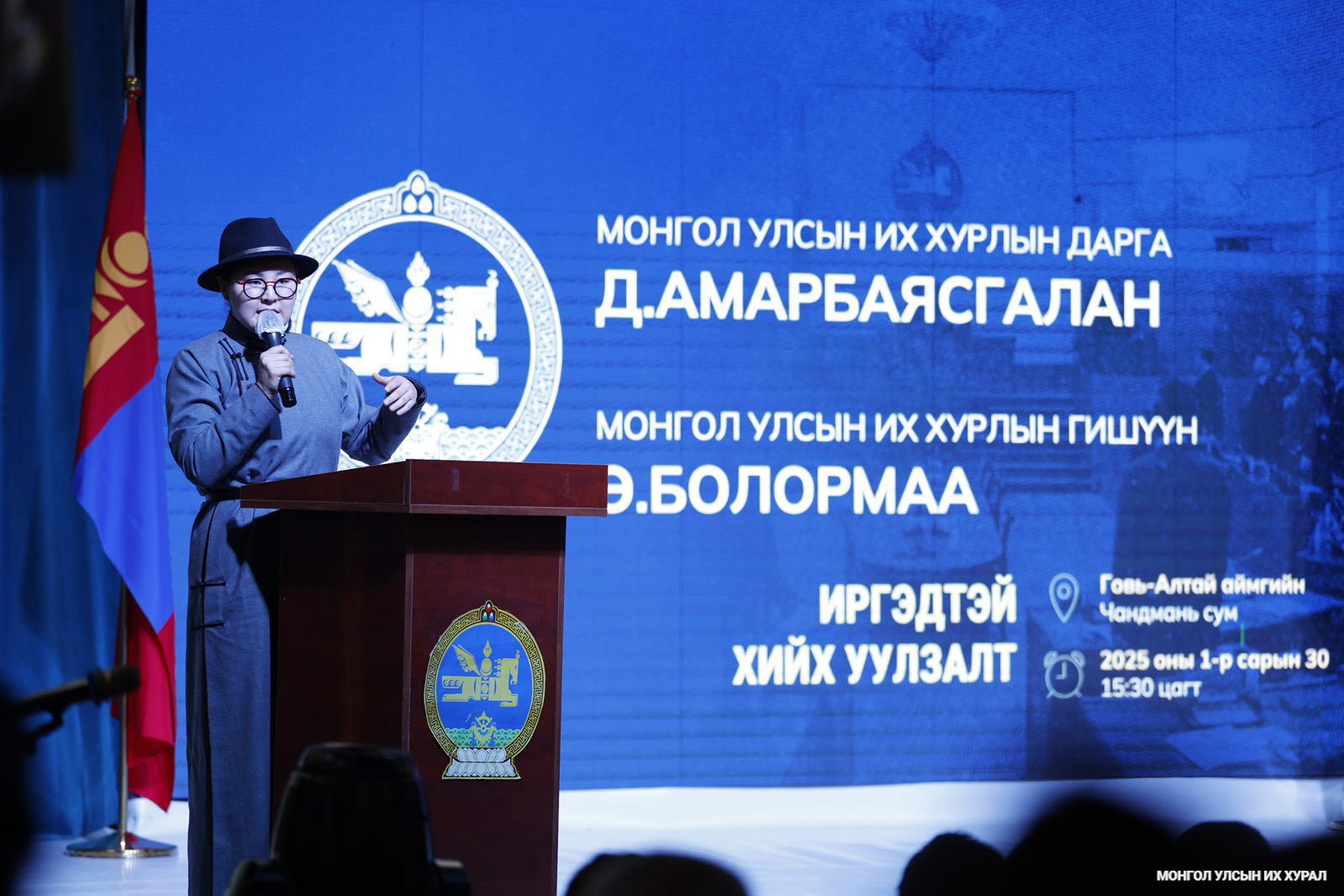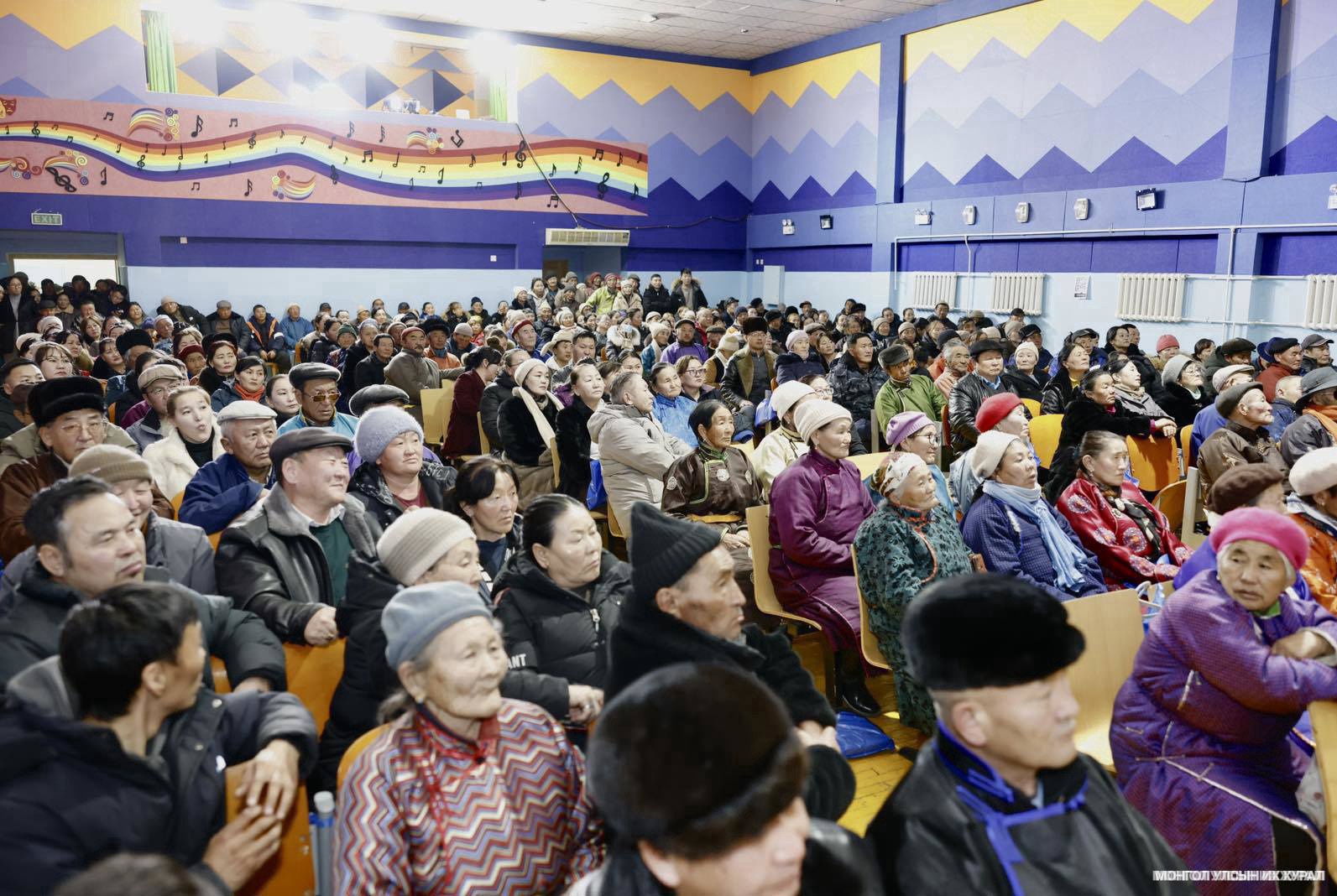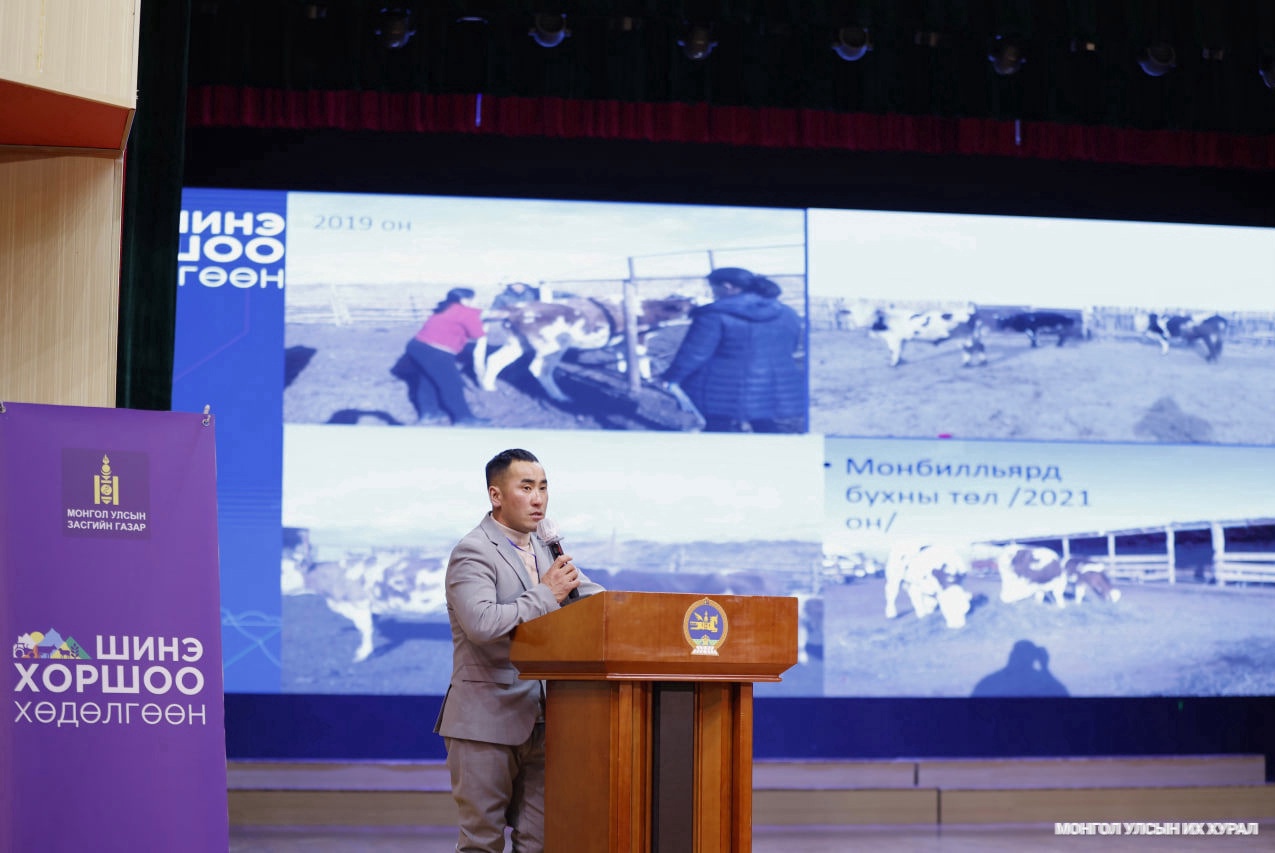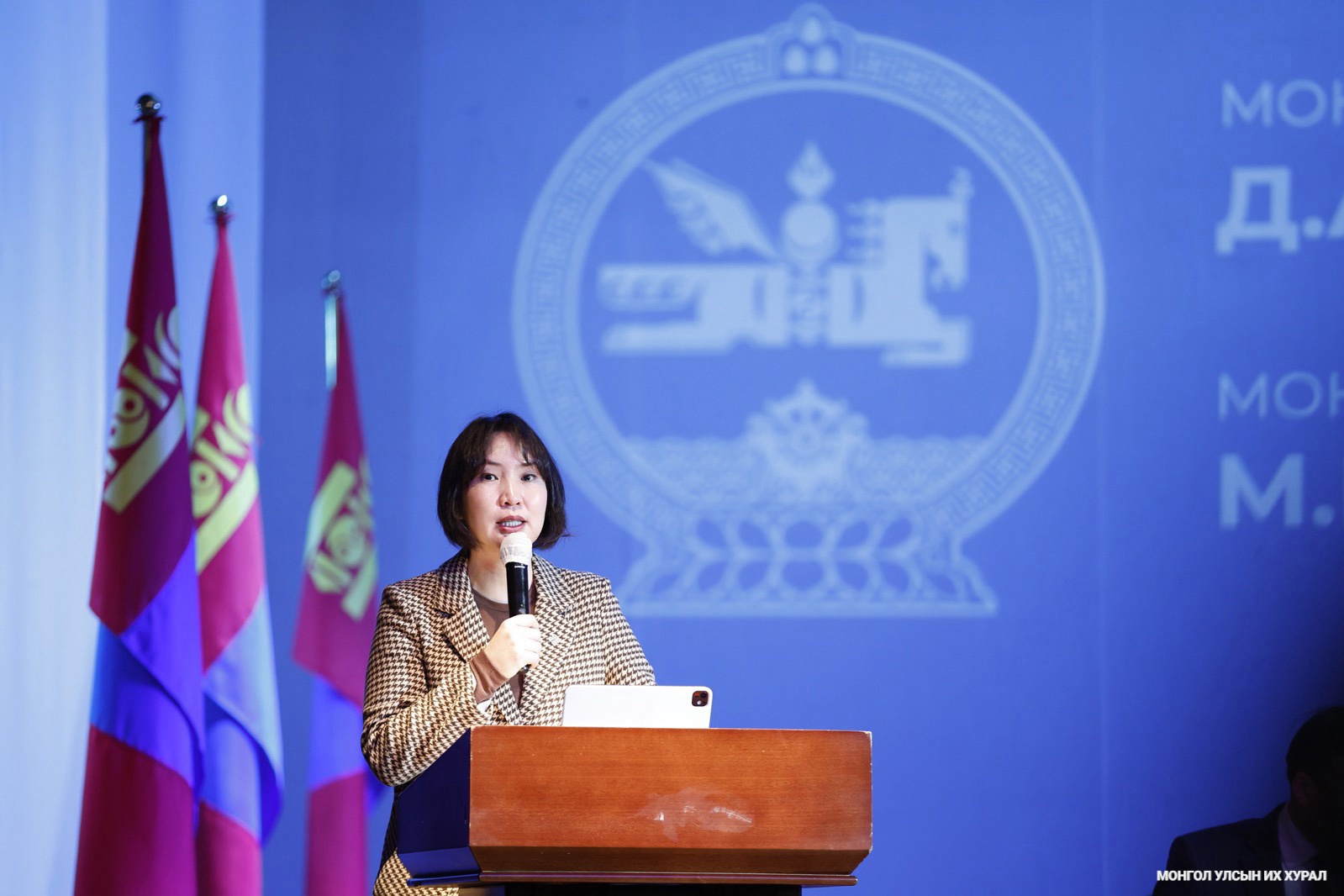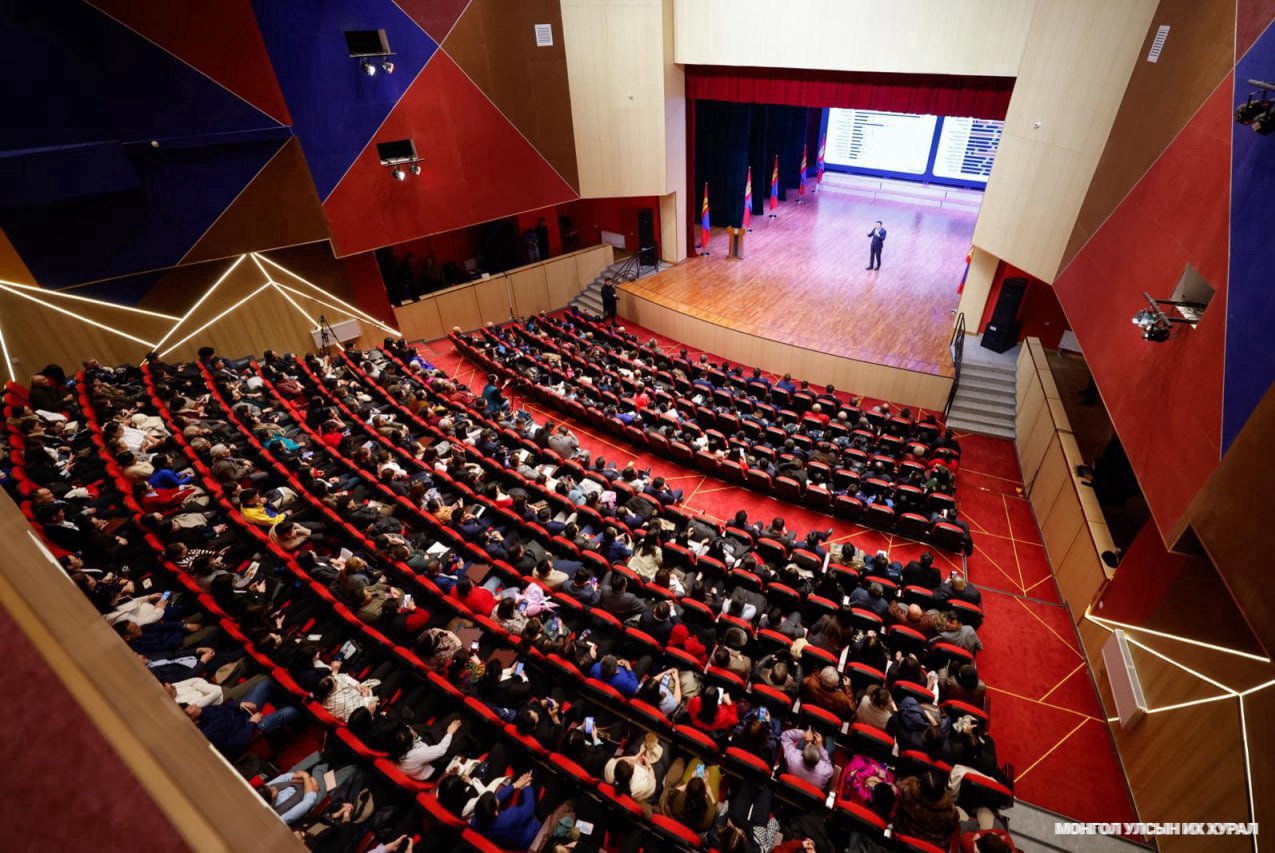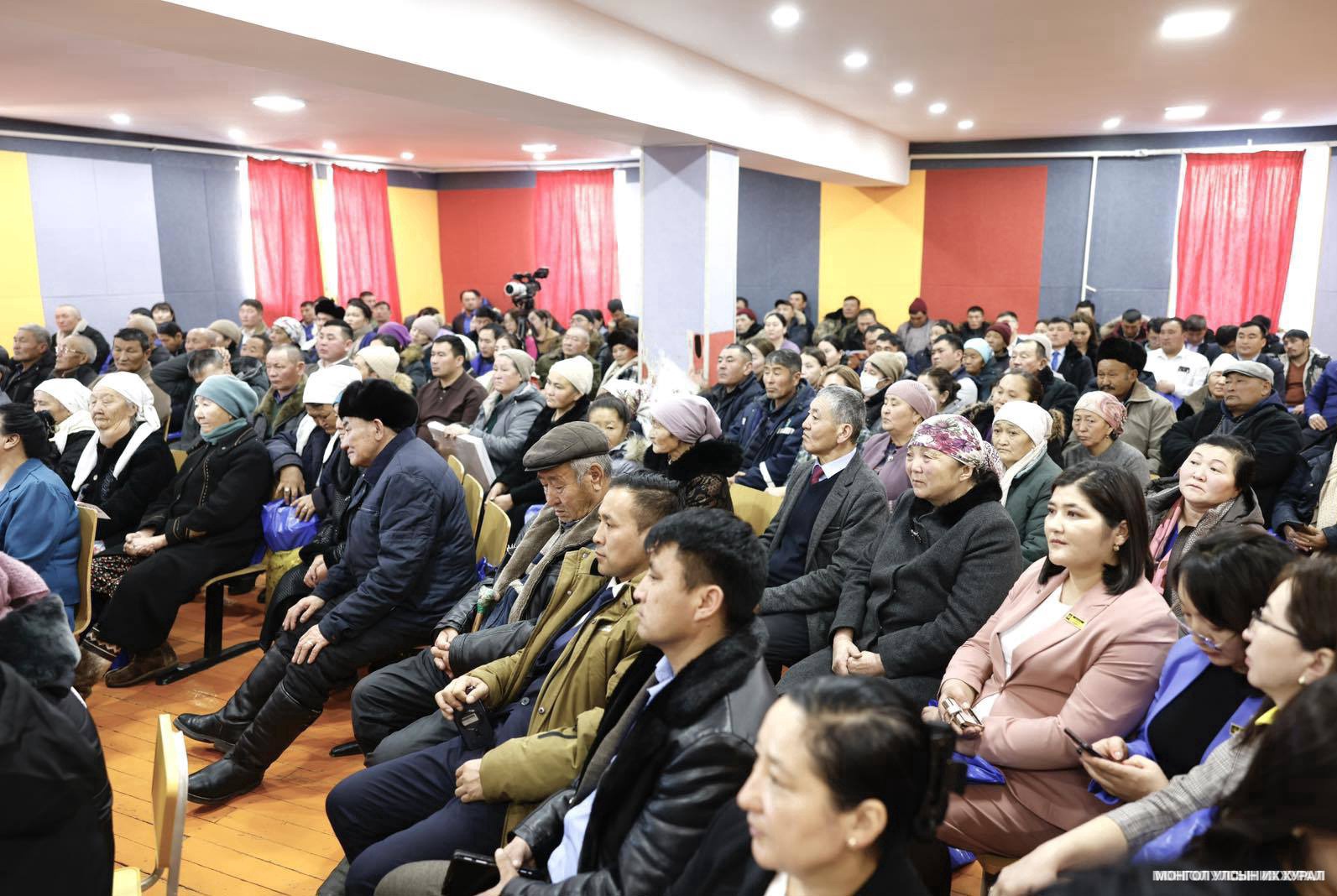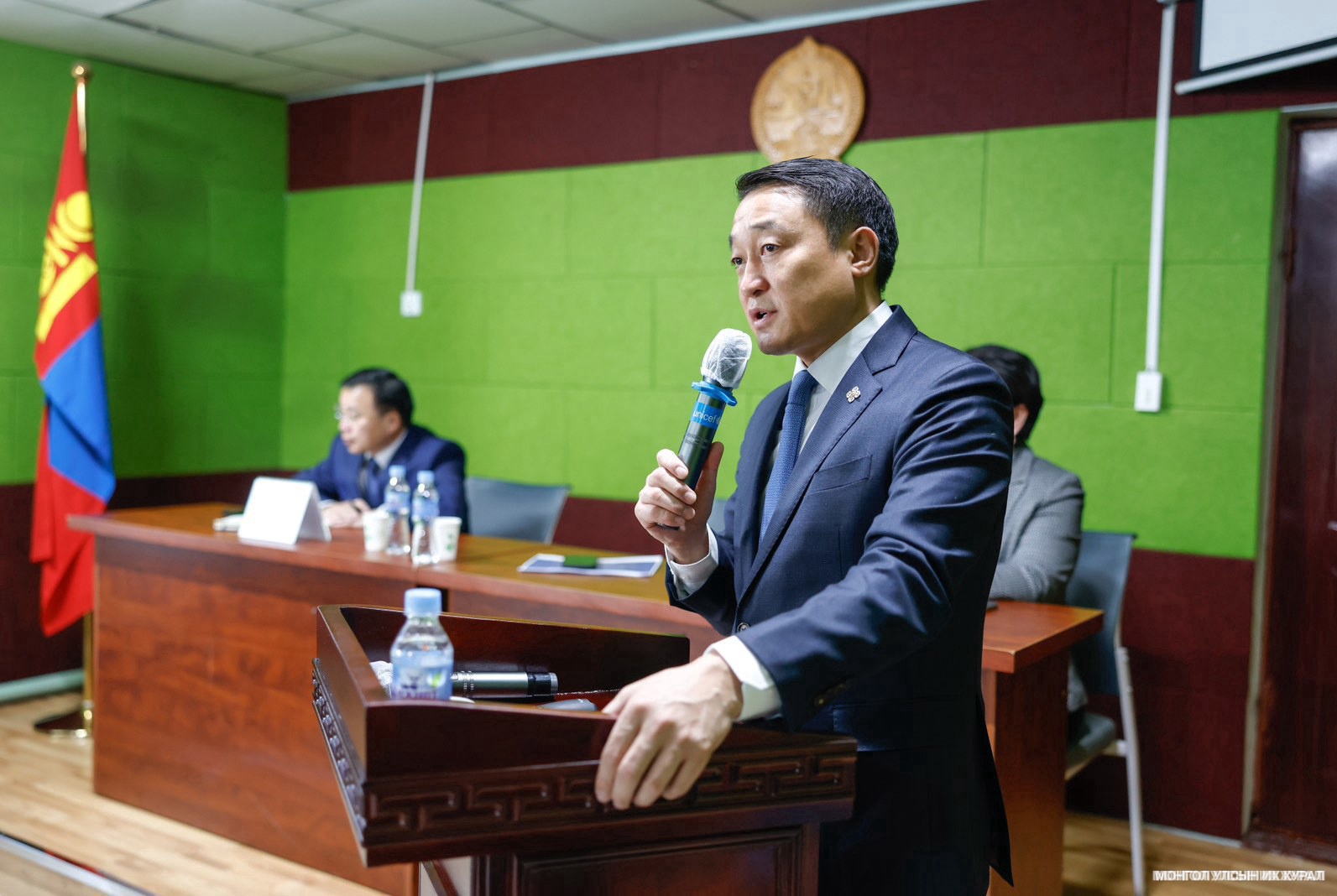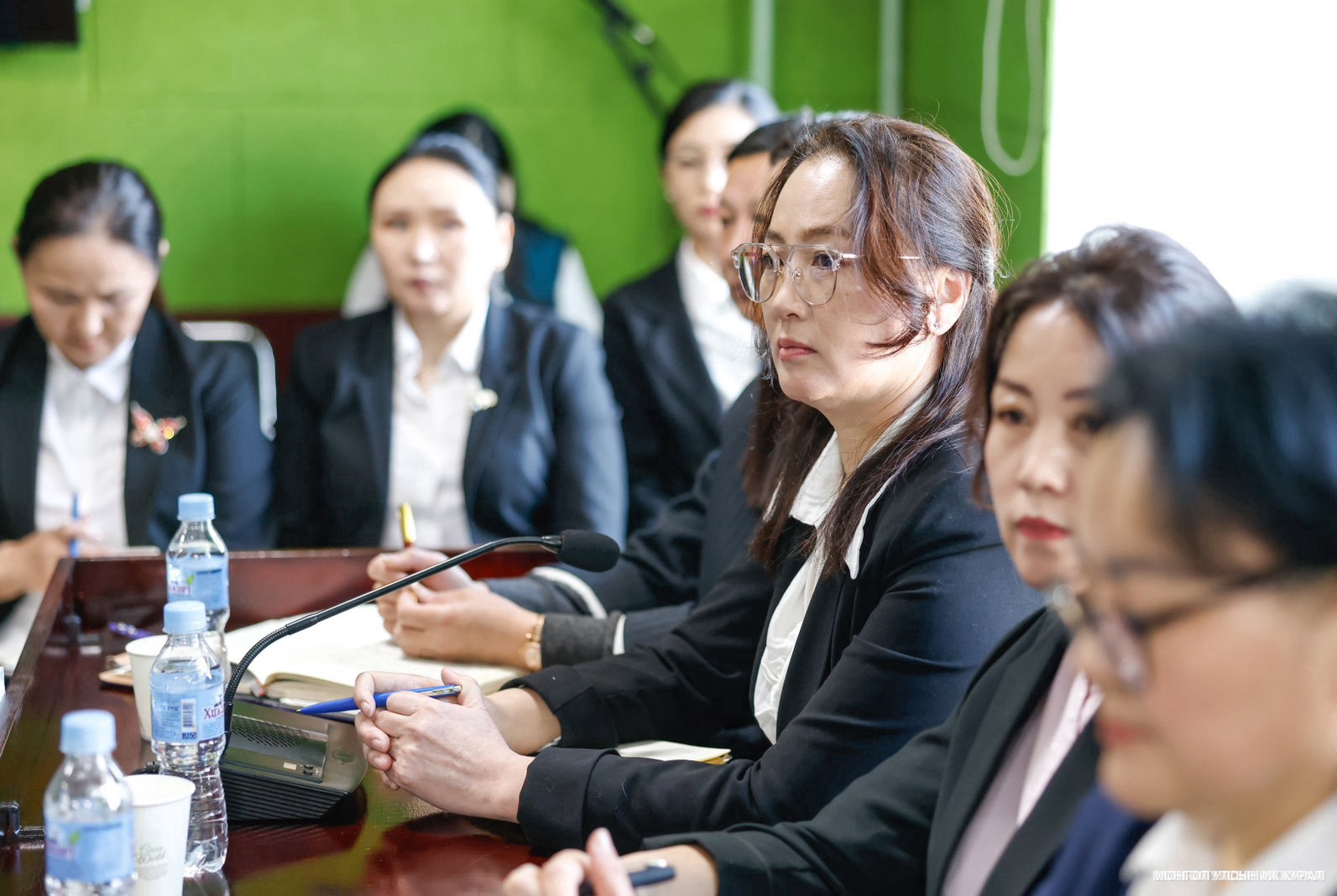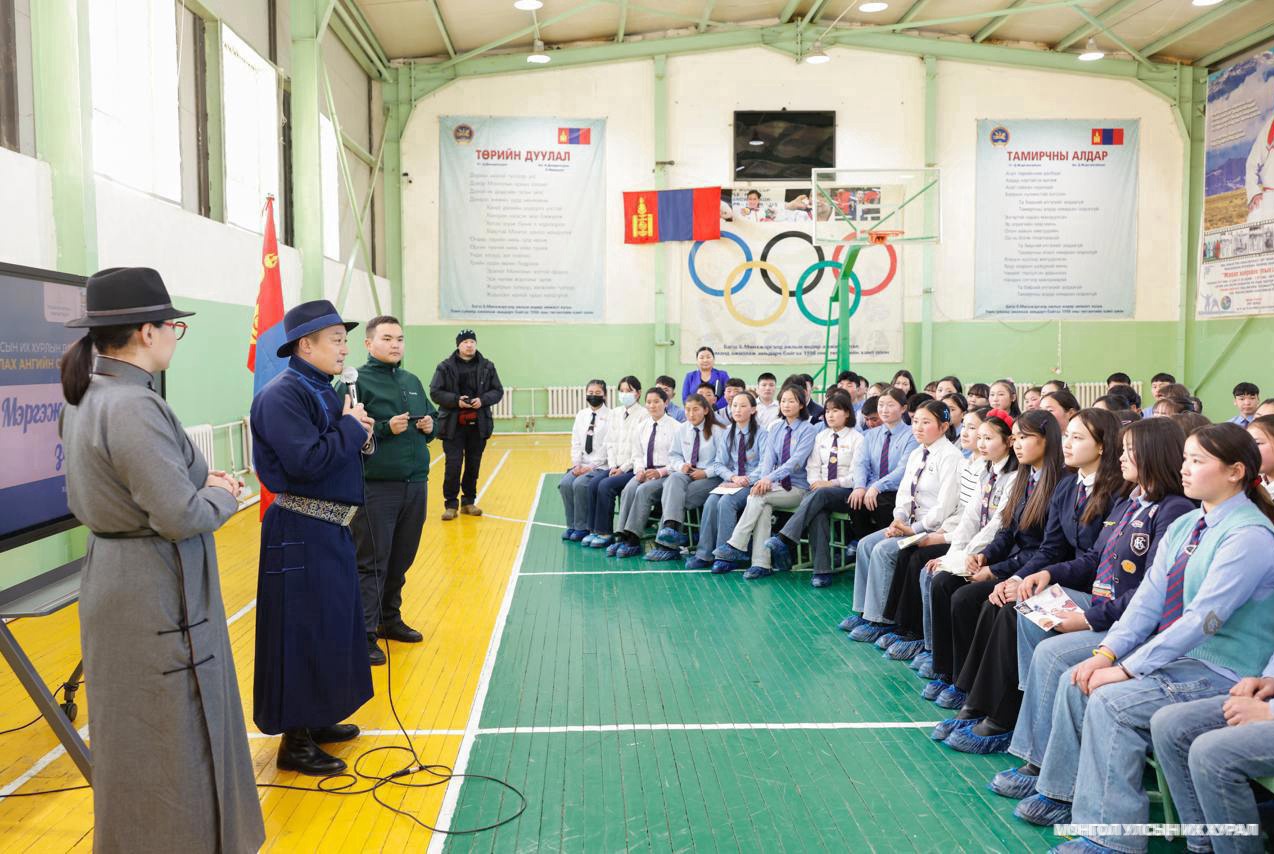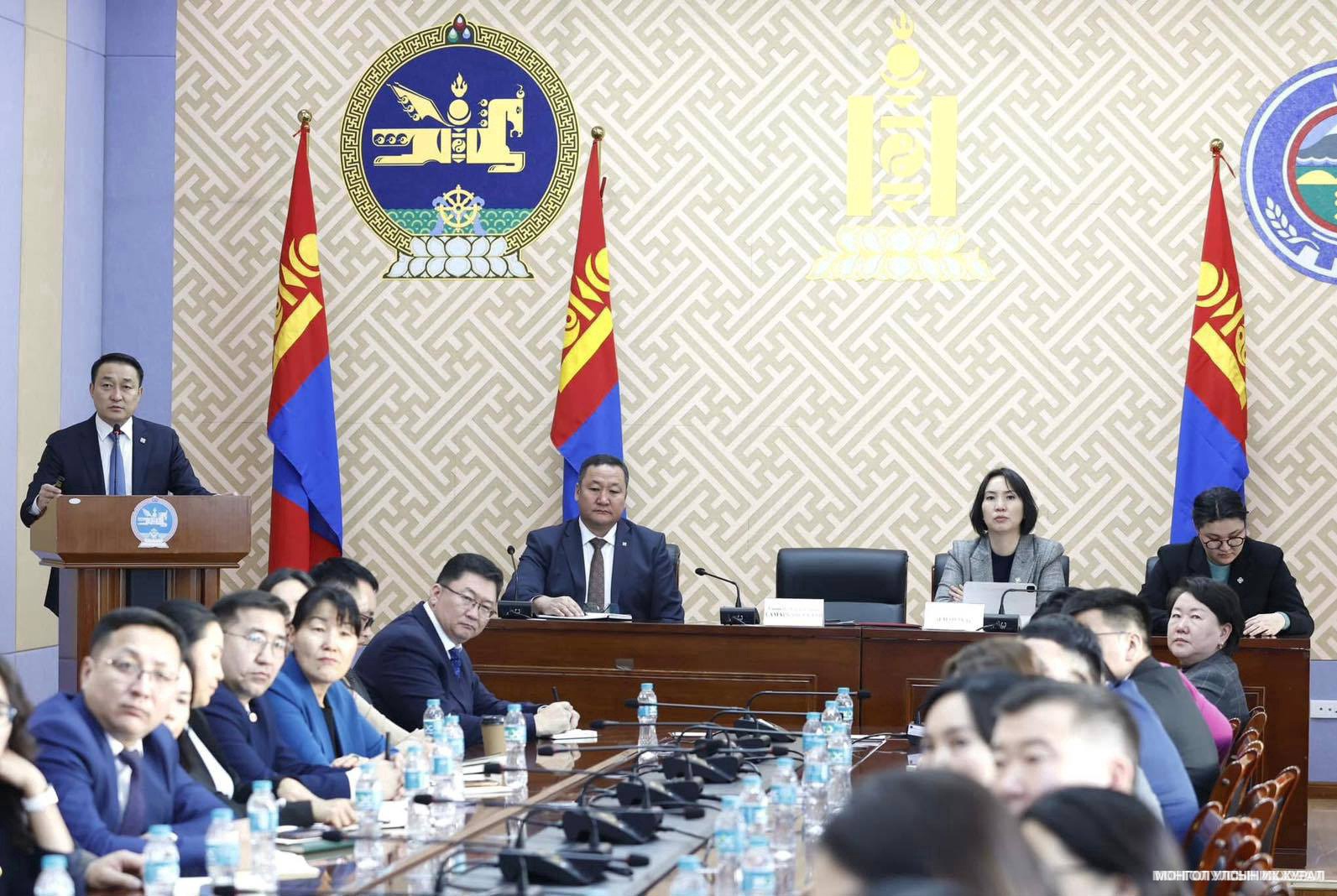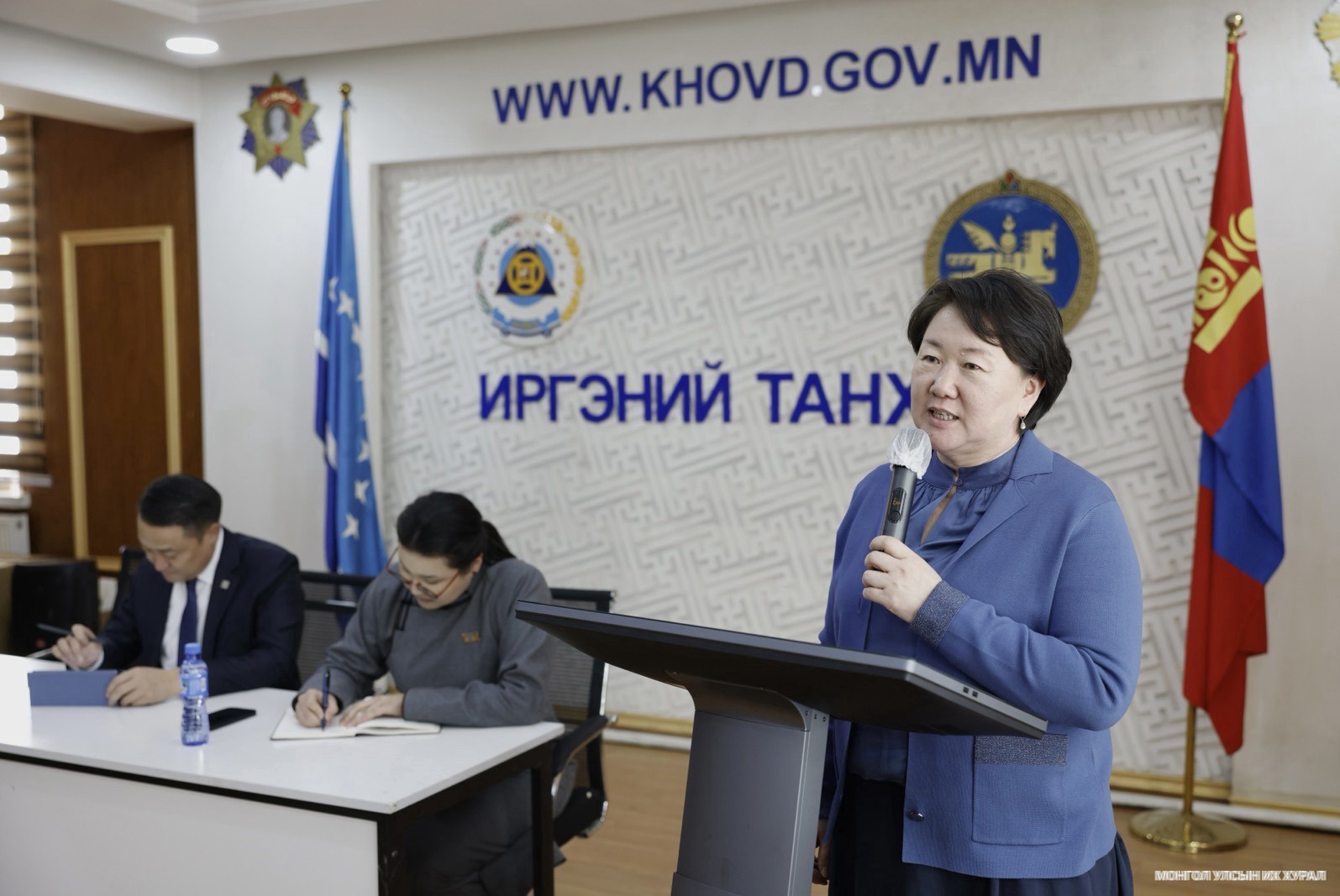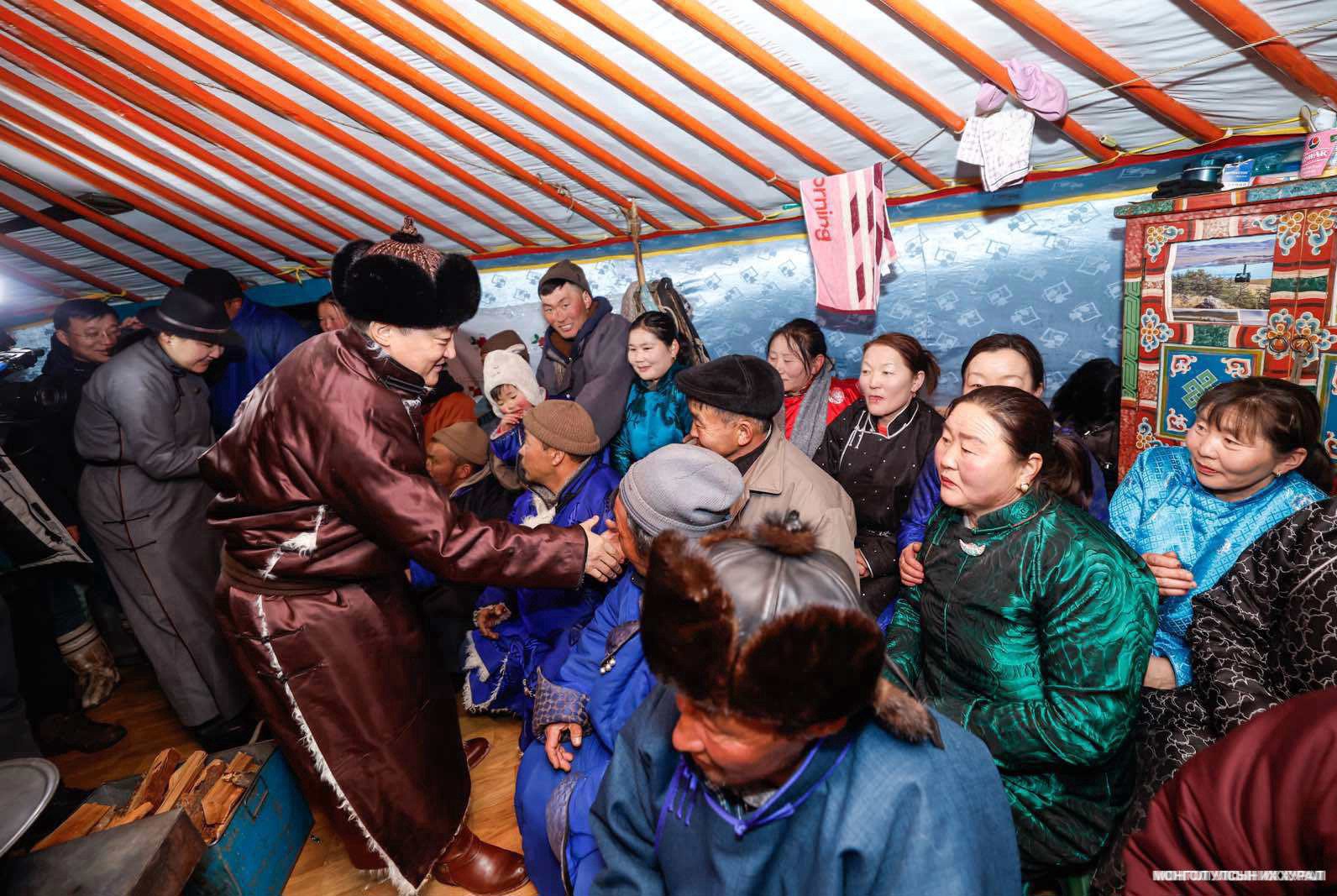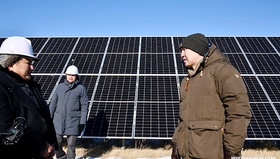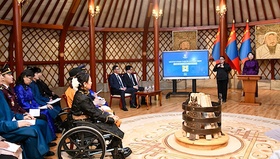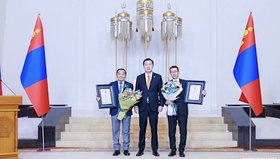Chairman of the State Great Hural (Parliament) D. Amarbayasgalan, along with MPs E. Bolormaa and M. Mandkhai, visited 38 soums in Govi-Altai, Khovd, Uvs, and Zavkhan provinces during the parliamentary recess. The delegation met with over 19,000 citizens, assessed the implementation of laws, and gathered input on regional issues to prioritize budget allocations for the coming years. Notably, more than 5,100 of the attendees were high school students.
With approximately 500,000 people living 1,000 to 2,000 kilometers away from Ulaanbaatar, direct engagement is crucial beyond news, television, and online sources. As part of the first 126-member Parliament, the delegation adhered to a policy of direct engagement with citizens. Chairman D. Amarbayasgalan emphasized that the new Parliament, composed of representatives from five parties and coalitions, has already unblocked four long-stalled mega projects and approved a deficit-free budget for the first time, demonstrating a depoliticized, results-oriented approach.
GOVI-ALTAI PROVINCE (January 28 – February 2, 2025)
Chairman D. Amarbayasgalan traveled to nine soums—Yesunbulag, Taishir, Delger, Biger, Chandmani, Erdene, Altai, Tsetseg, and Khaliun—as well as Bayantooroi village. During his meetings with local residents, he introduced the province’s 2025 budget allocation of 47 billion MNT and provided updates on major infrastructure projects. He highlighted plans to establish a renewable energy research center as part of efforts to position the western region as an energy hub, construct a 50-bed hospital under the National University of Medical Sciences, develop 15 surface water reservoirs, and expand the province’s central heating network and road infrastructure.
He also announced that work had begun on the design of the Altai-Uliastai and Altai-Burgastai border roads, which would connect Govi-Altai to Zavkhan and facilitate regional trade, reducing the need for long-distance transport to Ulaanbaatar and Zamyn-Uud. Residents expressed concerns over the shortcomings of the livestock insurance program and requested a thorough review before making a decision on reopening the Naransavstai border checkpoint. Chairman D. Amarbayasgalan assured them that any decision would be based on extensive research and consultations with experts, local stakeholders, and environmental organizations.
KHOVD PROVINCE (February 3–10, 2025)
In Khovd, Chairman D. Amarbayasgalan visited eight soums—Altai, Uyench, Bulgan, Möst, Jargalant, Khovd, Erdeneburen, and Buyant—where he engaged with over 2,700 residents. Discussions focused on the implementation of the “Three Pillars of Excellence” policy and its impact on legal reforms. He emphasized that MPs would shift from reporting progress based on infrastructure projects alone to providing macroeconomic indicators that reflect improvements in citizens’ quality of life.
During the meetings, residents voiced concerns about high consumer loan interest rates and the recent 30% increase in electricity prices, which they said was placing an economic burden on households. Chairman D. Amarbayasgalan reaffirmed Parliament’s commitment to banking and financial sector reforms to establish fairer lending practices and pledged to communicate their concerns regarding electricity costs to the relevant authorities.
Local business representatives and cooperative members called for greater trade and economic cooperation, particularly by allowing free movement through the Yarant border checkpoint to stimulate local commerce and tourism. Additionally, residents urged Parliament to prevent mining at the Halzan Buregtei deposit and reconsider the classification of the Khushuut coal mine as a strategic deposit.
UVS PROVINCE (February 11–15, 2025)
In Uvs, Chairman D. Amarbayasgalan visited 11 soums—Ulaangom, Ulgii, Khovd, Umnugovi, Bukhmurun, Sagil, Davst, Turgin, Tarian, Undurkhangai, and Zuunkhangai. During his meetings with community members, he discussed ongoing legal reforms under the “Three Pillars of Excellence” policy and emphasized the need to align regional development projects with broader national goals.
Residents raised concerns about employment opportunities, access to quality education, and housing policies. They also stressed the importance of integrating young herders into national development plans, ensuring that livestock raw materials are processed domestically, and supporting small businesses. They requested additional funding and legal support for cooperative organizations, particularly those seeking to formalize their operations and access larger markets.
Chairman D. Amarbayasgalan addressed the issue of water quality and announced that Parliament would launch a nationwide groundwater testing project to investigate potential links between contaminated drinking water and rising cancer rates.
ZAVKHAN PROVINCE (February 16–20, 2025)
In Zavkhan, Chairman D. Amarbayasgalan visited eight soums—Tes, Bayankhairkhan, Songino, Tudevtei, Numrug, Tosontsengel, Telmen, and Uliastai—where he announced that the 2025 budget includes 104.9 billion MNT for 35 projects. He highlighted the planned expansion of the third kindergarten in Uliastai, the construction of a new heating plant, and the start of a 159.5 km paved road connecting Songino and Tudevtei to the Artsuur border checkpoint, which is expected to become a key trade route for Zavkhan and the broader western region.
Local residents expressed concerns about inflation, pasture degradation, teacher shortages, and the deteriorating condition of schools and hospitals. High school students raised issues related to poor internet connectivity, limited access to sports and extracurricular activities, and difficulties posed by changes to the university entrance exam system. Chairman D. Amarbayasgalan confirmed that, following discussions with the Education Ministry, the expanded entrance exam requirements would be postponed until 2028 to allow students more preparation time.
He also met with judicial and prosecutorial representatives to discuss the implementation of the new Law on Courts. He pledged to secure funding for improved court infrastructure and emphasized that Parliament is committed to ensuring that citizens across Mongolia have access to fair and timely legal proceedings.
CONCLUSION
After completing his 23-day provincial tour, Chairman D. Amarbayasgalan reiterated that every piece of feedback collected would be relayed to the relevant government agencies. He emphasized that the core objective of regional development policies is to strengthen economic competitiveness, attract investment, and improve living standards. By prioritizing transport infrastructure, expanding renewable energy, fostering local entrepreneurship, and ensuring equal access to opportunities, Parliament aims to create a more balanced and sustainable national development model.

 Eng
Eng  Монгол
Монгол